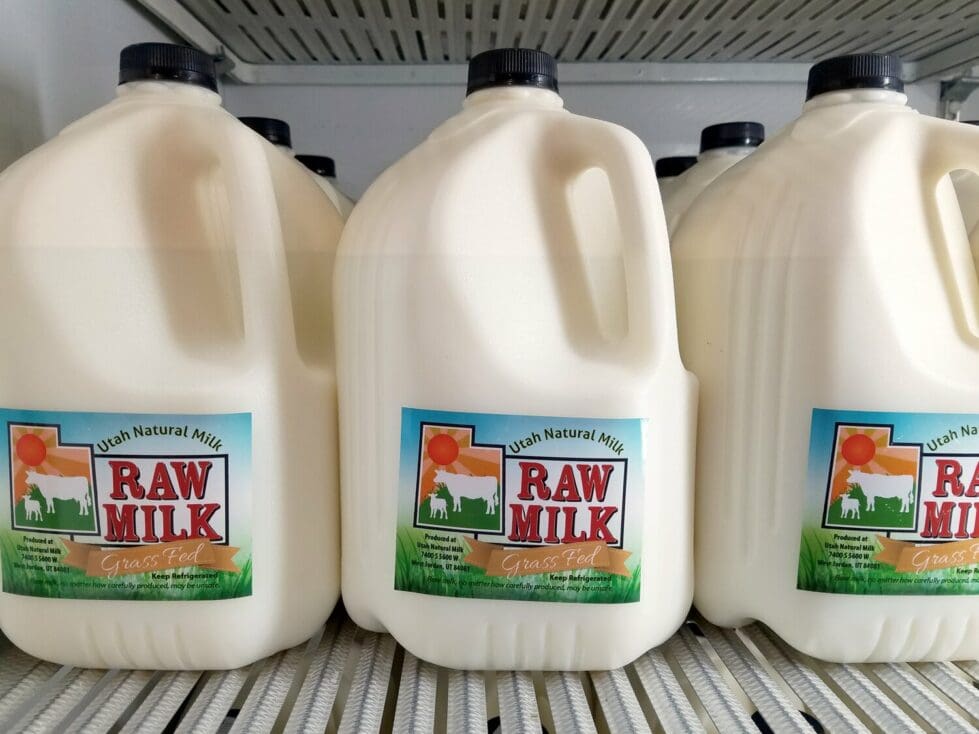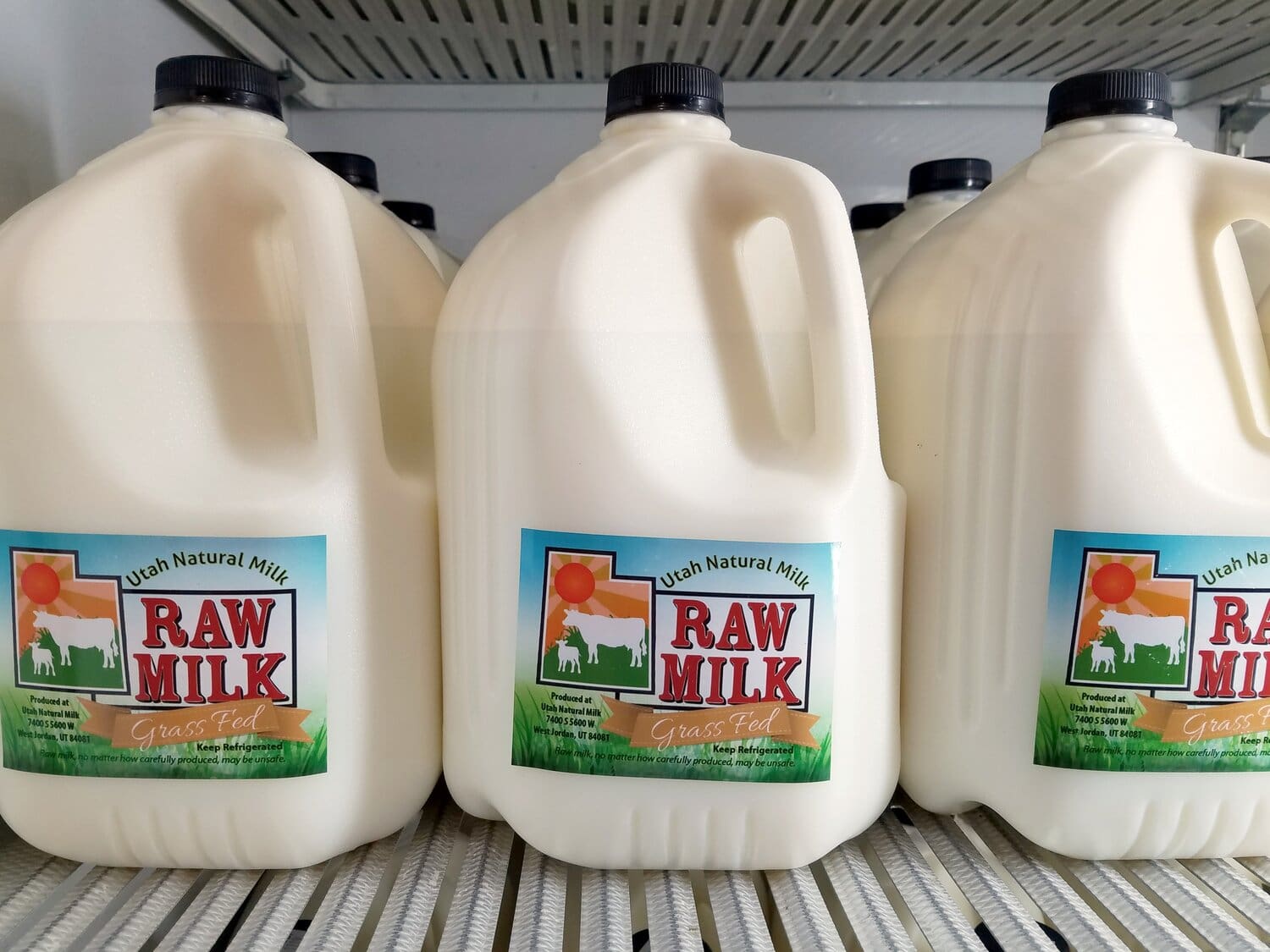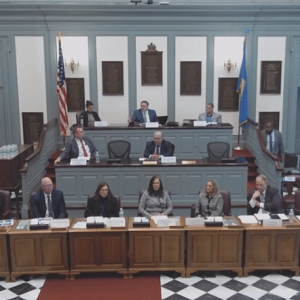While the sale of raw milk in America is either illegal, restricted to on-farm purchases, or other limitations, a handful of states have it completely legal for retail sale, and a new bill could add Delaware to that group.
Some concerns of possible diseases and health defects might put that in jeopardy, although a couple legislators swore by the unpasteurized milk.
“I was raised on raw milk… and sitting here, I’m wondering if that’s why I’m so healthy today,” said Senate Minority Leader Gerald Hocker, R-Ocean View, “In my 53 years of being in business I missed one day and my 22 years up here I missed one day, and I’ll give the credit to being raised on raw milk.”
Senate Bill 273, sponsored by Sen. Eric Buckson, R-Dover, legalizes the sale and distribution of raw milk and products derived from raw milk by dairy producers directly to consumers for human consumption.
Buckson called it a farm-friendly and consumer-friendly bill.
It was brought before the Senate Agriculture Committee Wednesday.
The sale of raw milk, which is unprocessed, unpasteurized, and unhomogenized, is currently prohibited by Section 9 of the current United States Department of Health and Human Services’ Grade “A” Pasteurized Milk Ordinance.
Buckson pointed out that the demand for raw milk has been increasing in recent years, and this would be a way to eliminate the need to travel to other states in the country that permit raw milk sales.
There’s also economic benefits, he said.
The bill details that the Raw Milk Institute estimates that raw milk producers can earn a profit nearly 10 times what they earn for regular milk sales.
That institute also lists benefits of raw milk consumption, which mainly hone in on a higher presence of healthy enzymes, probiotics, proteins, vitamins and more.
To achieve the economic benefits and meet consumer demand, SB 273 creates a raw milk permit to be issued and enforced by the Department of Agriculture.
Under the bill, no raw milk or product derived from raw milk may be sold in Delaware other than by a raw milk permit holder or an individual under the direct supervision of a raw milk permit holder, such as an employee.
The sale or distribution of raw milk and products derived from raw milk must be made directly by the permit holder or individual under the supervision of the permit holder to the consumer and not for purposes of resale.
The Department of Agriculture, in consultation with the Department of Health and Social Services, would be responsible for promulgating regulations to administer the raw milk permit program and for ensuring compliance with the bill.
“Many consumers right now in your districts, in mine, throughout the state, are receiving raw milk by way of Pennsylvania and other states,” Buckson said, “ They just are.”
Sen. Stephanie Hansen, D-Middletown, said her main concern is the bird flu, which is a strain of the influenza virus that primarily infects birds, but can also infect humans.
She said her worry stems from “the widening number of outbreaks that there are now in nine states that have 42 dairy cattle herds that have been tested positive.”
The bird flu isn’t necessarily a concern for human health, she said, but that its pathogens could mutate and affect other living beings.
Michael Scuse, secretary of the Delaware Department of Agriculture, said he would require farm testing.
“I want them to agree to monthly testing by an independent laboratory,” he said, “and I think these things will go a long way to protect the safety of those that want to consume the raw milk.”
All of the handful of public commenters were in support of the bill, including representatives from state farms.
Several of them pointed out that the state’s farms are losing money to Pennsylvania because Delawareans drive – sometimes several hours – across the border to purchase the raw milk.
Sen. David Wilson, R-Lincoln, said he was raised on raw milk for his first 16 years.
“I think it’s time, with the Department of Ag. overseeing it and working with the Department of Health, it’s a win-win for everybody,” he said. “It’s a matter of choice, and if you choose to do it, fine. If you choose to still deal with milk as pasteurized, that’s your choice.”
Senate committees do not hold a public vote, so the outcome of the bill can be found on the bill-tracker of the General Assembly website, typically within a few hours.
If released by the committee, SB 273 will be discussed by the full Senate.
RELATED STORIES:

Raised in Doylestown, Pennsylvania, Jarek earned a B.A. in journalism and a B.A. in political science from Temple University in 2021. After running CNN’s Michael Smerconish’s YouTube channel, Jarek became a reporter for the Bucks County Herald before joining Delaware LIVE News.
Jarek can be reached by email at jarek@delawarelive.com or by phone at (215) 450-9982. Follow him on Twitter @jarekrutz and on LinkedIn.
Share this Post













